Are you looking to navigate the often complicated world of healthcare treatment authorizations? Understanding the requirements and procedures can seem overwhelming, but it doesn't have to be. Whether you're a patient seeking necessary treatment or a provider helping your clients, knowing how to craft an effective authorization letter is key. Join us as we break down essential tips and provide a handy template to make the process smoother for you â let's dive in!
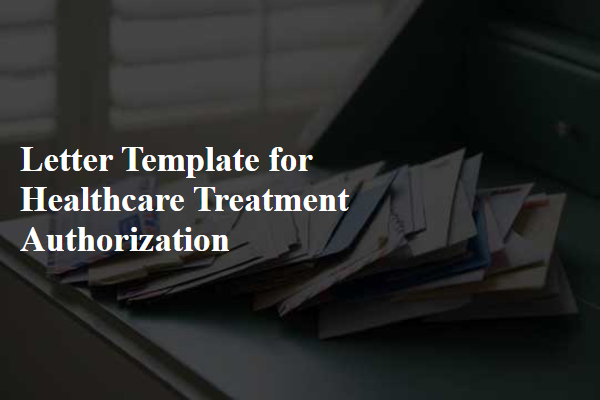
Patient Information
Health treatment authorization requires accurate patient information for processing. Key details include the patient's full name, date of birth, and medical record number, ensuring proper identification within healthcare systems. The patient's address, phone number, and insurance information (policy number and provider) are crucial for verification with insurance companies and ensuring coverage for procedures. Additionally, capturing specific treatment details, including the purpose of the authorization and the facilities or practitioners involved, provides clarity for healthcare providers. Accurate documentation maintains compliance with HIPAA regulations, safeguarding patient privacy throughout the authorization process.
Treatment Description
In a healthcare treatment authorization document, a detailed description of the treatment is crucial for ensuring clarity and approval. For instance, physical therapy sessions, prescribed for a duration of eight weeks (twice weekly), aim to rehabilitate post-surgical patients. The treatment focuses on specific techniques, such as manual therapy and therapeutic exercises, to enhance mobility and relieve pain following knee arthroscopy. Each session, lasting approximately one hour, incorporates individualized treatment plans tailored to the patient's unique recovery needs. Documentation may include details about the physical therapist's qualifications, the treatment facility located in Springfield, and insurance coverage limits for the procedure, ensuring a comprehensive overview for authorization purposes.
Medical Necessity Explanation
Healthcare treatment authorization requires a clear medical necessity explanation outlining the importance of specific treatments or procedures for patient well-being. Medical professionals must provide detailed information regarding the patient's diagnosis, such as diabetes or hypertension, along with relevant data, including test results (like blood glucose levels) and previous treatment responses. The recommended treatment may consist of medication (like insulin therapy) or surgical procedures (like angioplasty), emphasizing evidence-based guidelines supporting the proposed intervention. Additionally, it's crucial to highlight potential complications from delaying treatment, such as worsening health conditions or increased hospitalizations, to justify the urgency of the authorization request to insurance providers.
Authorization Statement
Authorization statements for healthcare treatment serve as critical documentation in patient care processes. These statements must include essential details such as patient identification information (full name, date of birth, and insurance policy number), treatment type (specific procedures or therapies), and healthcare provider (name and contact information of the physician or affiliated facility). Dates of treatment authorization should be clearly indicated, along with specific conditions that must be met to ensure compliance with healthcare regulations. Additionally, a signature from the patient or legal guardian is necessary, validating consent for treatment, which adheres to HIPAA (Health Insurance Portability and Accountability Act) requirements for patient privacy and data protection. Thorough documentation safeguards against legal issues while facilitating seamless healthcare delivery.
Contact Information for Further Queries
In healthcare treatment authorization processes, it is essential for patients and providers to have clear communication channels. For any further queries, patients can reach out to the healthcare facility's contact number, typically a dedicated line such as (555) 123-4567, available from 9 AM to 5 PM on weekdays. Email correspondence can also be directed to info@healthcarefacility.com for prompt support regarding medical treatment details. The facility's physical address should be conveniently listed, like 123 Wellness St, Health City, State, ZIP code 12345, for in-person consultations or document submissions. Utilizing these resources ensures clarity and understanding of treatment protocols, insurance verification, and patient rights.
Letter Template For Healthcare Treatment Authorization Samples
Letter template of healthcare treatment authorization for insurance purposes
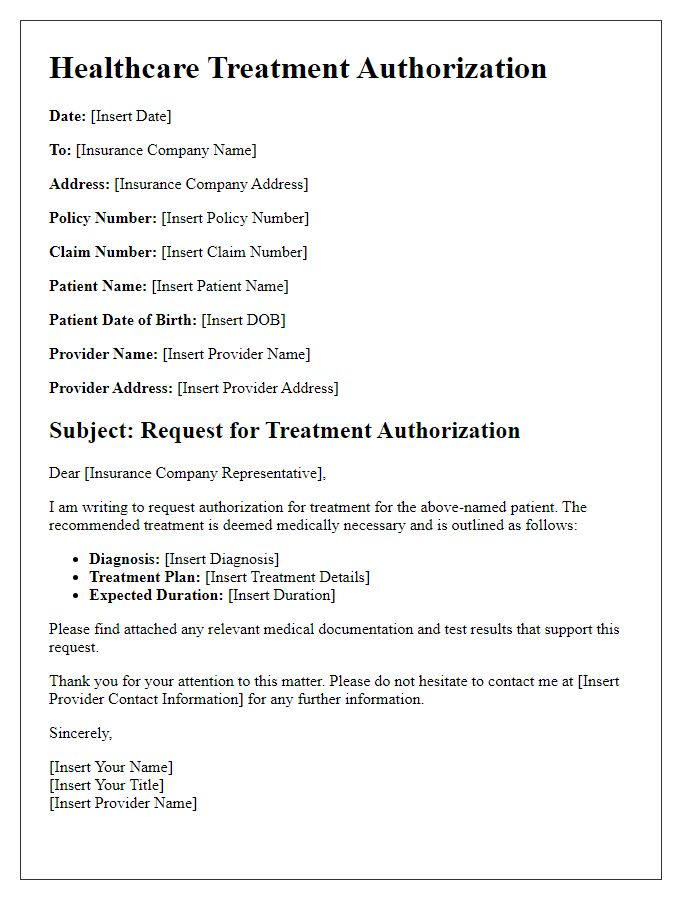
Letter template of healthcare treatment authorization for urgent care requests
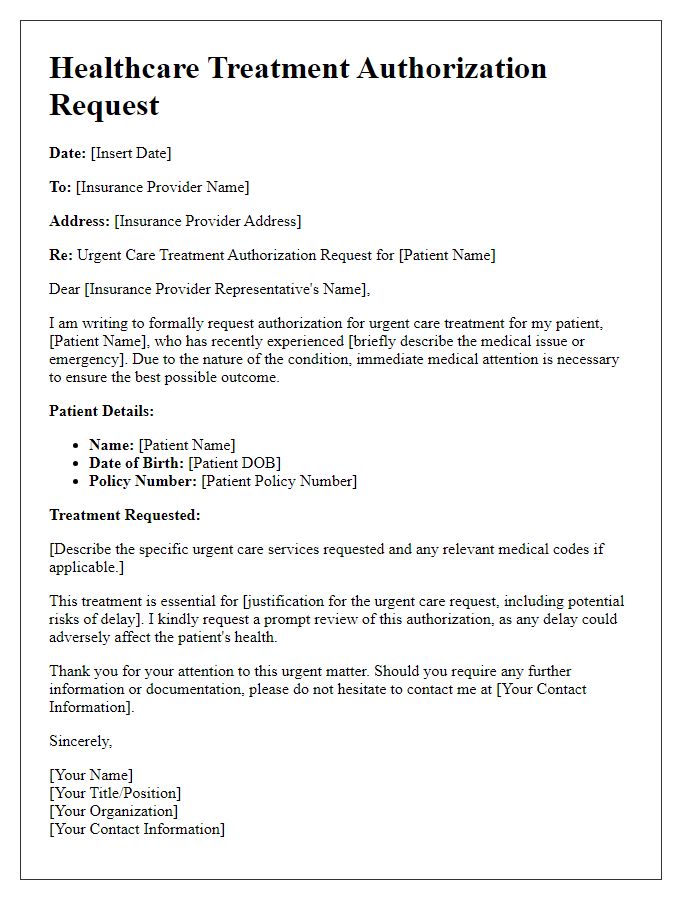
Letter template of healthcare treatment authorization for elective surgery
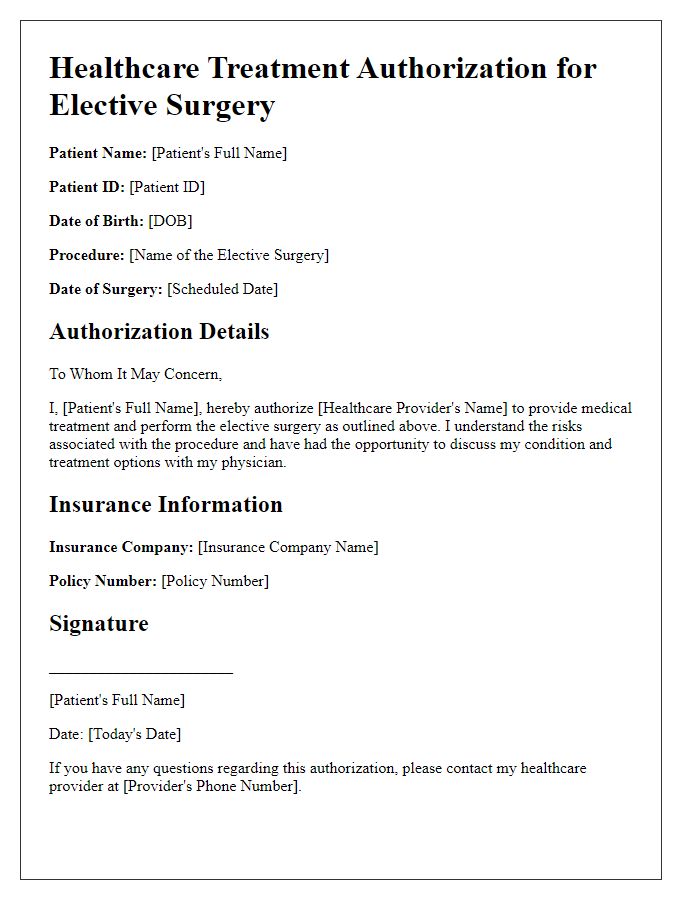
Letter template of healthcare treatment authorization for outpatient services
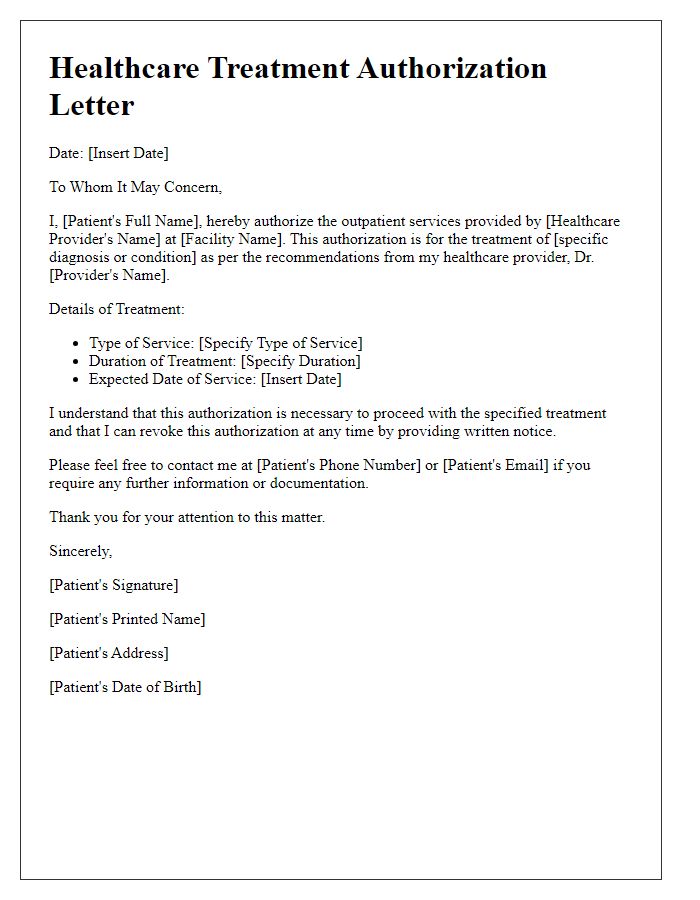
Letter template of healthcare treatment authorization for physical therapy
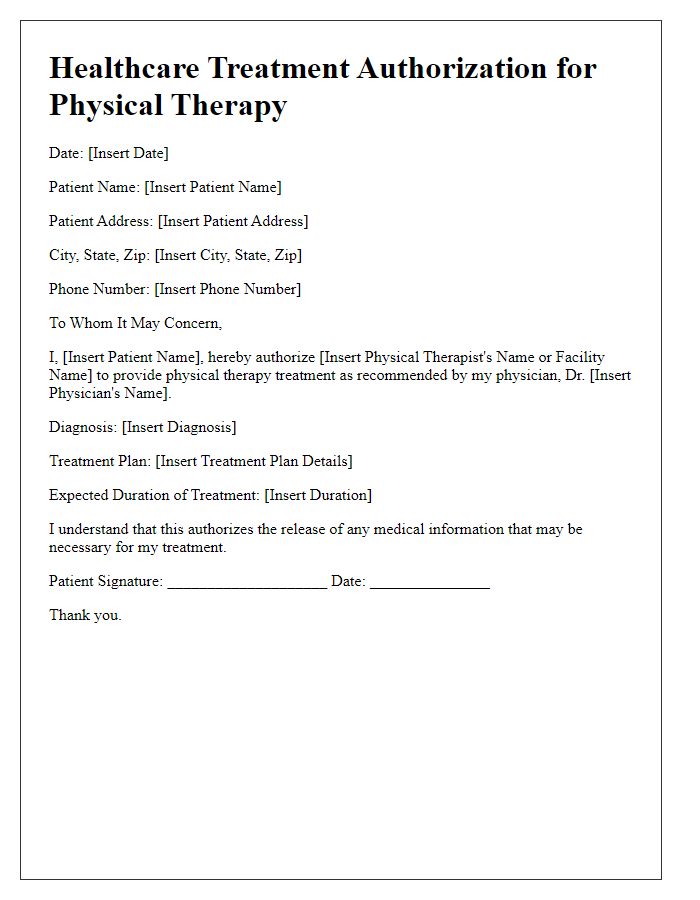
Letter template of healthcare treatment authorization for specialized medical tests
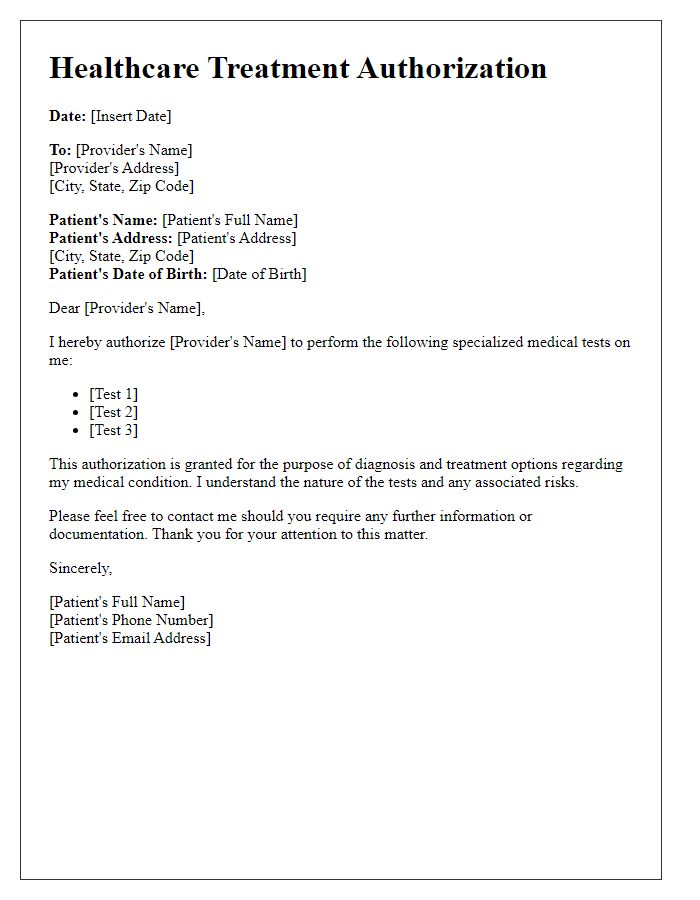
Letter template of healthcare treatment authorization for prescription drug coverage
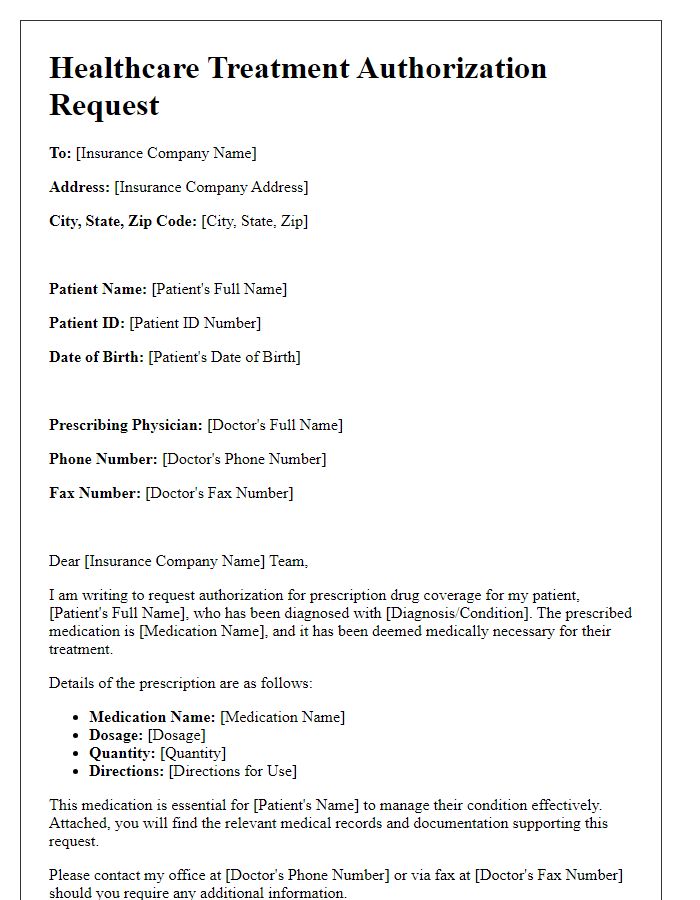
Letter template of healthcare treatment authorization for referral to a specialist
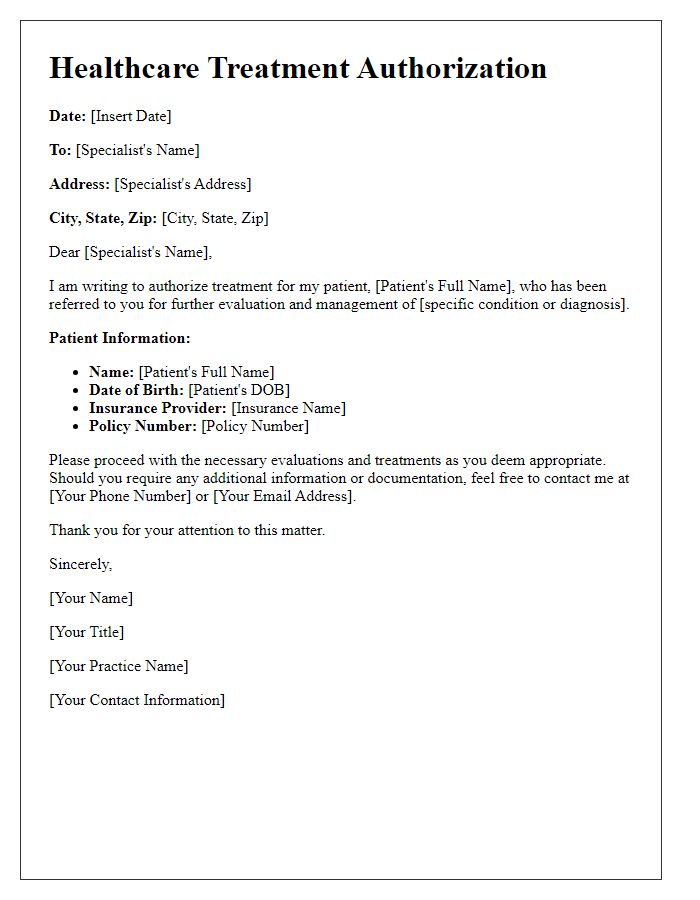
Letter template of healthcare treatment authorization for emergency medical services
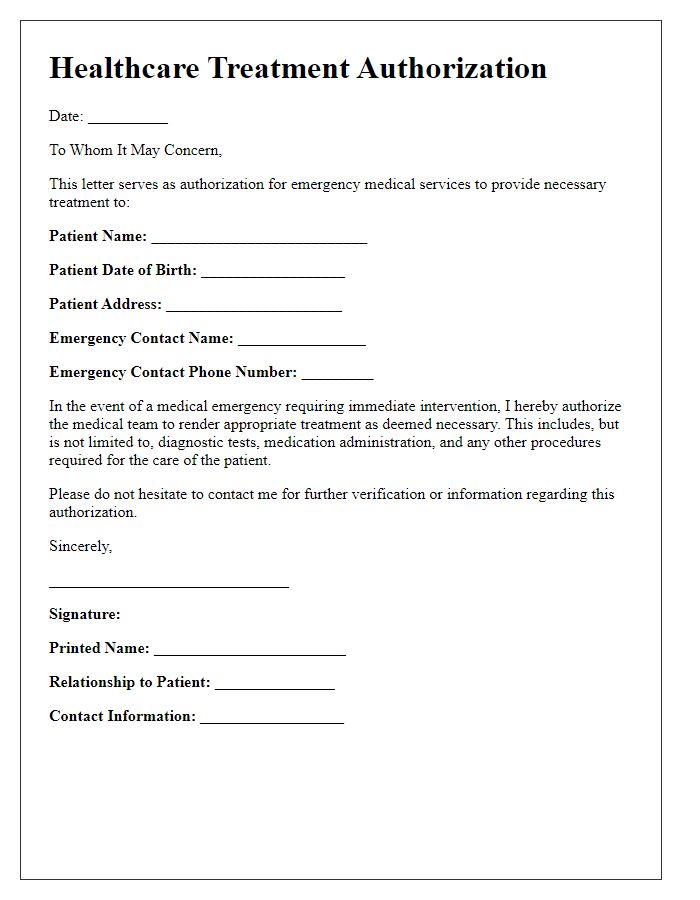

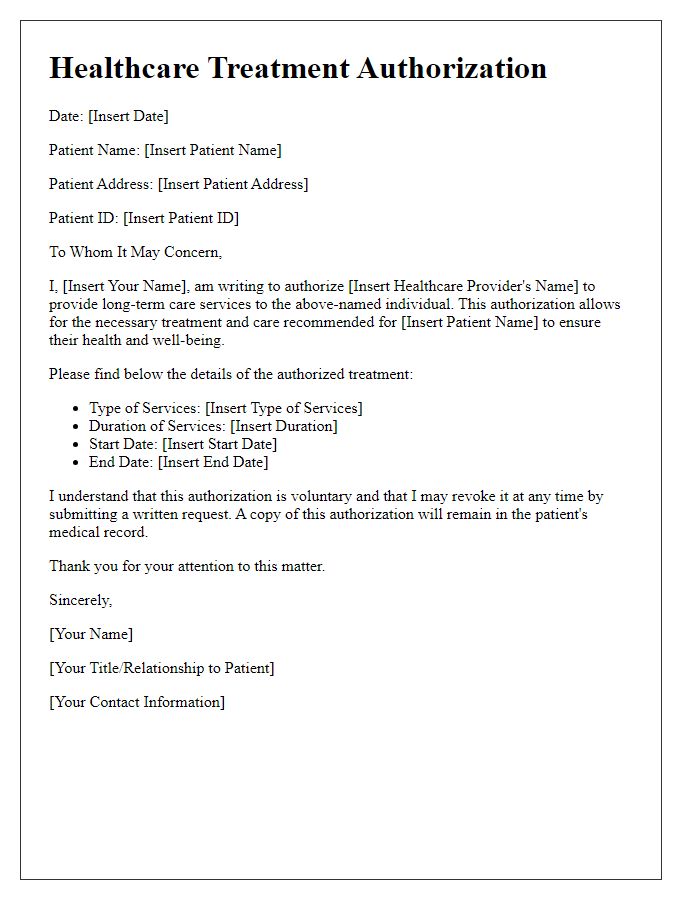

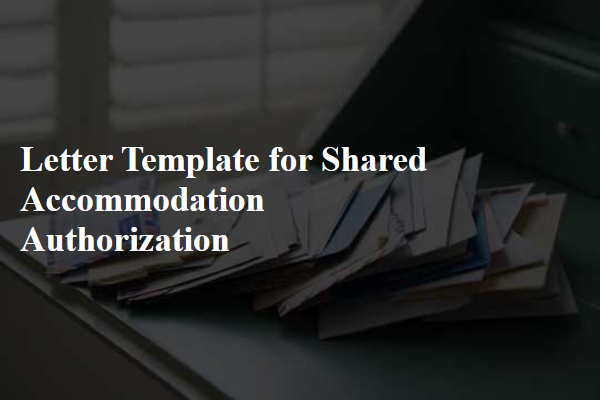
Comments